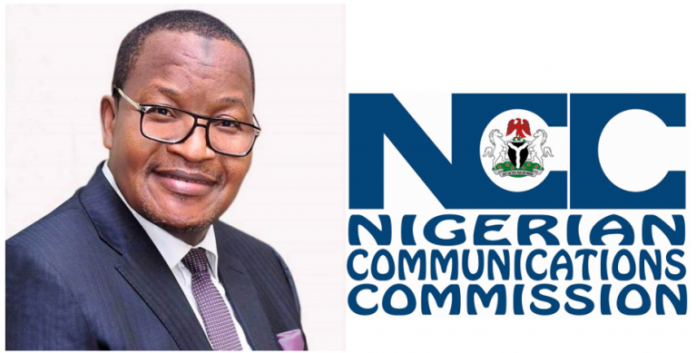NCC’s InfraCo Policy Meant To Promote Local Investments – Danbatta
TECHDIGEST – The Nigerian Communications Commission (NCC) is vigorously promoting local investment in digital infrastructure and competition in the provision of accessible high speed broadband infrastructure, says Professor Umar Danbatta, the executive vice chairman of the Commission.
The EVC made the remark in his keynote addresses titled: “Establishing Rules and Laws for the Effective Implementation of Local Content Promotion Policy in the National Telecoms Sector”, at the inaugural edition of Policy Implementation Assisted Forum (Piafo-001) on National Policy for Promotion of Indigenous Content in the Nigerian Telecommunications Sector held on Thursday, August 12, 2021.
Danbatta who described ‘Indigenous Content Policy’ as generally refers to “any policy that encourages the development of indigenous skills, technology transfer, use of indigenous manpower and indigenous manufacturing”, said that with advancements in technology, administrations have come to recognize the need for their indigenes to participate actively in exploitation and transformation of their resources into goods and services aimed at economic growth.
“As we are all aware, the Federal Government has put in place very robust policy and legal framework for local content within the oil and gas sector. Similarly, the advent of local content in the Nigerian Telecoms sector is probably as old as the Nigerian telecoms revolution itself.
The National Telecommunications Policy (Cap 13, National Telecom Policy 2000) posited that the domestic production of telecommunications hardware and software is desirable for national development.
It further states that, Government shall encourage domestic production of telecommunications equipment, components and software to meet local and export demands”, he said.
He said that in giving legal backing to the above policy direction, the Nigerian Communications Act, 2003 identifies, as one of its primary objects the encouragement of local and foreign investments in the Nigerian communications industry.
“With the steady evolution of Telecommunications in Nigeria, the industry and its infrastructure are appreciated as the infrastructure of infrastructures, positioned to drive growth and efficiency in every other sector (both private and public) by supporting the optimization of institutions and processes in the ecosystem. Accordingly, the development of effective local participation at all levels of the value chain becomes a sine-qua-non to the overarching national economic development and market success”.
While giving updates on Indigenous Content Valorization in the Nigerian telecom industry, the EVC said that the Federal Government recently reinforced the local content agenda by putting in place Executive Order 003 of 2017 and Executive Order 005 of 2018 titled Support for Local Content in Public Procurement by the Federal Government and Development of Local Content in Science, Engineering and Technology respectively.
“The Commission instituted several measures and strategies towards ensuring compliance by the industry to the aforementioned Executive Orders, these include building local capacity through various initiatives and innovations which are aimed at encouraging digital skills and entrepreneurship as well as building local investment (infrastructure).
This will in turn enable the Commission to deliver on the stipulated targets in the Nigerian National Broadband Plan (NNBP) 2020-2025.
Towards achieving the mandate, the Commission has developed a licensing framework to enable infrastructure companies (INFRACOs) roll out optical fibre cables for communications in the 774 Local Government Areas that make-up the Federation.
The Commission also ensures full utilization of spectrum for deployment of services through Re-farming, Re-planning and Auctioning.
His Excellency, President Muhammadu Buhari GCFR, On March 8, 2021 presented the National Policy for the Promotion of Indigenous Content in the Nigerian Telecom Sector. The Policy (a.k.a NPPIC) seeks to accelerate the pace of indigenous digital capacity development and thereby enhance national competitiveness and prosperity for indigenous/local players in Nigeria”, Danbatta said.
Read Also:
He said that in the Policy document, there are clearly defined objectives identified for each focus area with expected significant impact that a concerted implementation would have on the sector and the national economy.
“In addition, the Commission has developed an action plan to help guide the implementation of the Policy. To this effect, the Commission has articulated several targets and high impact interventions, which are Specific, Measurable, Attainable, Relevant and Time-based to address the major policy areas.
“The focus policy areas are Manufacturing, Software Development, Compliance Monitoring, Licensing, Funding, People, and Research & Development for Digital Innovation and Entrepreneurship”, the EVC added.
NCC’s Roadmap for implementation of the Policy for the Promotion of Local Investment (content) in the Nigerian Telecom Sector
Speaking further, the NCC boss said that as required by the Policy, the Commission has established the Nigeria Office for Developing the Indigenous Telecoms Sector (NODITS).
“This Office is saddled with the responsibility of implementation of the NPPIC as well as the Executive Orders 003 and 005. Relevant portions of the Nigerian National Broadband Plan (NNBP) 2020-2025 as well as the National Digital Economy Policy and Strategy (NDEPS) are also under the purview of this new office called NODITS.
“Other Departments within the Commission are equally saddled with responsibilities that help to inculcate indigenous participation in the telecom sector. Efforts being made by the Research & Development and Licensing Departments are worthy of mention in that regard. Under the auspices of the Research & Development Department, the Commission has sponsored research efforts in several universities across the country.
Notable areas of research conducted include “Development of All Weather Solar Systems For Energy Optimization in a Mobile Communications Base Stations” (at Ekiti State University of Technology), “Design and Fabrication of Meta-material Inspired UWB/MIMO Antenna for the 5G-Sub 6GHz Application” (at Taraba State University) and “Intelligent Autonomous Multi-UAVs (Multiple Drones) Swarm Monitoring for Effective Surveillance and Situation Awareness in the Nigerian Telecommunications Industry” (at Gombe State University).
By these activities the Commission seeks to identify with and harness local resources in Nigerian institutions of learning for the benefit of the industry.
Through R&D, the Commission has also successfully initiated Professorial Chairs in Abubakar Tafawa Balewa University (ATBU), University of Ibadan, Federal University of Technology, Owerri (FUTO) and Bayero University Kano.
This is informed by the need to establish concrete local linkages to deepen the relationship between the telecom industry and the academia in Nigeria; and to provide the missing integration and collaborative partnership required to galvanise qualitative indigenous solutions in telecommunications in Nigeria. R&D also supports the development of local Tech-Hubs and hackathon initiatives aimed at supporting indigenous upstarts, App developers and ICT innovators in general”.
Meanwhile, NCC has identified several areas of collaboration with other Agencies and Non-Governmental Organizations such as National Office for Technology Acquisition & Promotion (NOTAP), Small & Medium Enterprises Development Agency (SMEDAN), National Agency for Science & Engineering Infrastructure (NASENI), National Information Technology Development Agency (NITDA) and Rockefeller Foundation. Equally, there are plans towards direct intervention in line with subsisting policies e.g., in the local production of corrugated optical ducts (COD) to cater for fibre requirements in Nigeria and ultimately for export.
Danbatta said the Commission was pleased to collaborate with Business Metrics and their partners to deliver the maiden initiative of its Policy Implementation Assisted Forum on the National Policy for Promotion of Indigenous Content in the Nigerian Telecommunications Sector (aka PIAFo-001).
He said that the Commission considers stakeholder engagement and consultation as a key strategic regulatory approach hence the success story of the sector is largely attributable to the wide consultations and engagements employed at every step of the sectors journey.




















